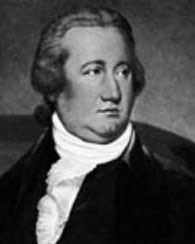
The Klan shot down this white State Senator because he was Republican and was fighting for the rights of blacks in his State. Even republican U.S. Rep. Joseph H. Rainey though Dr. Winsmith was hit seven times in that hail of bullets, he survived the shooting and lived to testify before Congress about the attack made on him by the Klan. In 1868, the Klan in South Carolina issued a push-card about the size of a baseball card. 155 It pictured 63 “Radicals”; they were all Republicans. Of the 63 “Radicals” or Republicans in the South Carolina legislature, 50 were black and 13 white. On the back of the card, all the names of the Republicans were listed; evidently, if the Klan wanted to pay them a night visit – as they had to Senator Winsmith – with the help of this card, they would know exactly for who they were looking.
Although much progress had been made because of the 13th Amendment and the civil rights laws passed in Congress, Democrats in the South still found ways to ignore those laws. Although forced to acknowledge that slaves had become free, they denied former slaves the rights of citizenship in those States, therefore withholding from them the rights accorded to all other citizens in their State. Congress responded with the 14th Amendment a civil rights amendment to the Constitution declaring that former slaves were full citizens of the
State in which they lived and were therefore entitled to all the rights and privileges of any other citizen in that State. KKK card identifying republicans in the South Carolina legislature: 50 blacks and 13 whites when the 14th Amendment came to a vote, 94 percent of the Republicans in Congress voted for the passage of that civil rights Amendment; however, the records of Congress reveal that not one Democrat – either in the House or the Senate – voted for the 14th Amendment! 157 Three years after the Civil War, and Democrats from the North as well as the South were still refusing to recognize any rights of citizenship for black Americans!
Perhaps this lack of support for civil rights is not surprising considering the makeup of the national Democratic Party at that time. A handbill highlighting some of the distinguished notables at the 1868 Democratic National Convention held in New York City on July 4th of that year reveals that Democratic delegates to that Convention included:
Rebel Generals (25), Rebel Colonels (30), Rebel Majors (10), Rebel Captains and other Minor Rebel Officers (20), Rebel Governors (5), Rebel Congressmen (15), and therefore a total of Rebel Members (105). Nearly one-fifth of the members of the Democratic National Convention were leaders who had either militarily fought for or politically led the delegates to the 1868 democratic national convention the 1868 democratic national convention slaveholding nation in the South. The handbill also featured portraits of two prominent Rebel Generals who participated in that Convention.
One was Wade Hampton. Before the war, Hampton had been a Democratic U. S. Senator from South Carolina, but he vacated the Senate to join the new slaveholding nation formed by southern Democrats. In 1876, Hampton ran for the
Democratic governorship of South Carolina; one of his active allies in that election was a group called the “Red Shirts,” 159 which was essentially the Klan dressed in red shirts rather than white hoods. To help win Hampton’s governor’s race, they issued the following guidelines:
Every Democrat must feel honor bound to control the vote of at least one Negro by intimidation, purchase, keeping him away, or as each individual may determine how he may best accomplish it. We must attend every Radical i.e., Republican meeting that we hear of, whether they meet at night or in the daytime. Democrats must go in as large numbers as they can get together – and well-armed. Gen. Wade Hampton how democrats convinced black voters not to vote republican Leading newspapers of the day – such as Harper’s Weekly – included an illustration demonstrating how Democrats controlled votes in those elections. In fact, during a congressional hearing about whether southern blacks voted Democrat, the following exchange occurred:
Q. Were there many colored Democrats there?
A. Very few indeed; some barbers and a few men that worked in towns pretended to be Democrats.
Q. Do you know any colored men who were Democrats from instinct?
A. No sir; only from the instinct of self-preservation.